Labs
 Agricultural Sustainability in the Anthropocene
Agricultural Sustainability in the Anthropocene
Primary Contact: Damian Maddalena
Host Campus: Geography, Geomatics, and Environment, UTM
Agricultural sustainability in a changing climate at various scales, with a focus on the interface between agricultural and natural systems. Particularly interested in open source tools and science that can inform decisions in the public and private sectors.
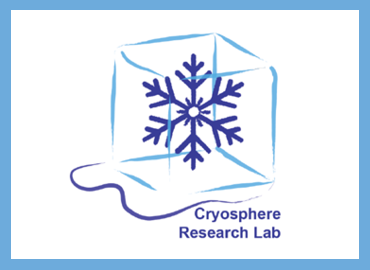 Cryosphere Research Lab
Cryosphere Research Lab
Primary Contact: Laura Brown
In the Cryosphere Research Lab we focus mainly on snow and ice and how they are responding to ongoing climate changes. Current research projects in the lab mainly fall into two broad categories: changing arctic ice and snow, and temperate region lake ice. We use a mix of numerical modelling, remote sensing and field work to achieve our research objectives, which seek to better understand the changes taking place in the cryosphere.
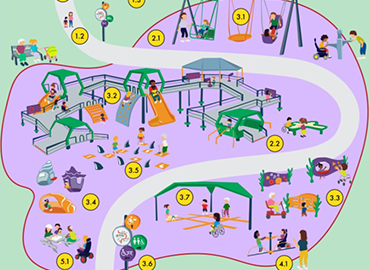 Engagement & Planning for Inclusive Communities (EPIC) Lab
Engagement & Planning for Inclusive Communities (EPIC) Lab
Primary Contact: Tim Ross
Host Campus: Department of Geography & Planning, St. George; Bloorview Research Institute
The mission of the EPIC Lab is to advance more inclusive communities for families living with childhood disability. Using primarily qualitative methods, Lab members engage four key research areas: (1) Education access, (2) Transportation and mobility, (3) Inclusive play, and (4) Addressing institutional ableism.
(Image designed by Megan Cheun)
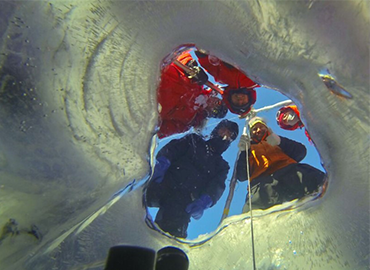 Environmental and Aquatic Biogeochemistry Laboratory
Environmental and Aquatic Biogeochemistry Laboratory
Primary Contact: Igor Lehnherr
Host Campus: Geography, Geomatics, and Environment, UTM
In the Environmental and Aquatic Biogeochemistry Laboratory we conduct research to understand the impacts of environmental stressors such as contaminants (mercury, metals and organic contaminants), nutrients, and climate change on aquatic ecosystems, focusing primarily on the Arctic and Boreal ecoregions. A biogeochemical perspective is required because many environmental problems, including pollution, climate change and eutrophication, are caused by anthropogenic disturbances to natural biogeochemical cycles. Our research is interdisciplinary - integrating physical geography, limnology and environmental biology - and combines ecosystem-scale field studies, controlled experiments and emerging analytical techniques to elucidate how humans impact the natural world we live in.
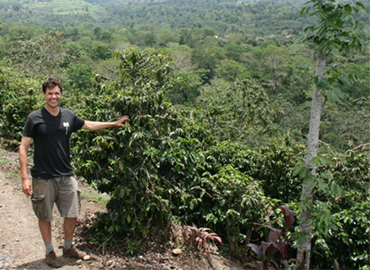 Global Environmental Change Lab
Global Environmental Change Lab
Primary Contact: Adam Martin
Host Campus: Department of Physical and Environmental Sciences, UTSC
The Global Environmental Change Lab is based at University of Toronto Scarborough. Our group focuses on the causes and consequences of variability in plant traits, and its linkages with key ecosystem processes including carbon sequestration, nutrient cycling, and plant responses to climate change. We also explore how plant diversity has changed over the past decades, and what this means for the ecology of agricultural systems.
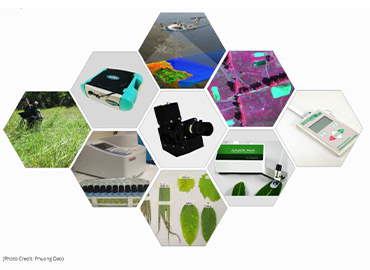 The Remote Sensing and Spatial Ecosystem Modeling Laboratory (the RSSEM Lab)
The Remote Sensing and Spatial Ecosystem Modeling Laboratory (the RSSEM Lab)
Primary Contact: Yuhong He
Host Campus: Geography, Geomatics, and Environment, UTM
We investigate changes that have occurred in natural (grasslands, forests, wetlands) and managed (farmlands and urban) systems using remote sensing, machine learning, and ecosystem modelings, for the common goals of understanding how human activities and global changes affect environments and how to make our natural/built environments healthier, more resilient, and adaptable.
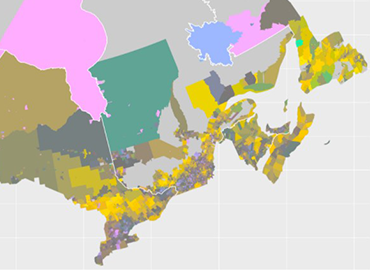 Spatial Analysis of Urban Systems (SAUSy) Lab
Spatial Analysis of Urban Systems (SAUSy) Lab
Primary Contact: Michael Widener
Host Campus: Department of Geography & Planning, St. George
The SAUSy lab is generally interested in using cutting edge geographic data science to understand how urban systems impact a range of social and health outcomes, from access to affordable and health food to equitable availability of transit services.
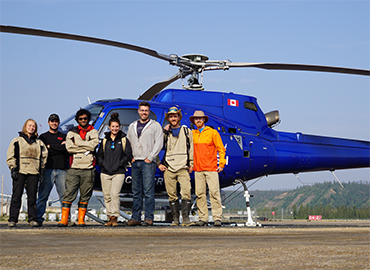 UTM Paleolab
UTM Paleolab
Primary Contact: Trevor Porter
Host Campus: Geography, Geomatics, and Environment, UTM
The UTM Paleolab specialises in reconstructing past climate and environmental change in sub-Arctic and Arctic regions, mainly in N.W. Canada and Alaska, using a wide range of natural indicators such as tree rings, fossil leaf waxes and the stable isotope geochemistry of relict permafrost.
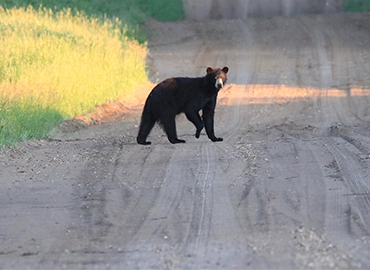 Wildlife, Land, and Sustainability Lab
Wildlife, Land, and Sustainability Lab
Primary Contact: Andrea Olive
Host Campus: Geography, Geomatics, and Environment, UTM
Research in this lab focuses on wildlife and land conservation in the context of biodiversity loss, climate change, and sustainable development.
Groups & Collaborative Projects
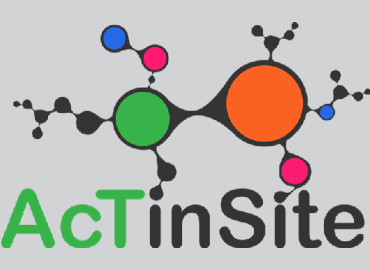 ActInSite Project
ActInSite Project
Primary Contact: Lindsay Stephens
Host Campus: Department of Geography & Planning, St. George / Multi-site
The ActInSite project (Accommodation to Include Students with Disability in Practicum Sites) is an interdisciplinary and multi-institutional collaborative project. The goal of research in the ActInSite project is to increase accessibility for Disabled students in experiential and work integrated learning. We use participatory and engaged processes to design interventions and change social and cultural ideas about disability so that access becomes easier.
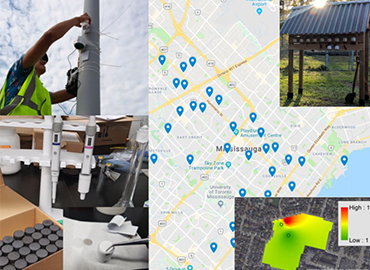 Adams’ Research Group
Adams’ Research Group
Primary Contact: Matt Adams
Host Campus: Geography, Geomatics, and Environment, UTM
Our focus is on individuals’ exposure to air contaminants in the urban environment. Research outputs cross between the social and natural sciences, leveraging and advancing spatial analysis; while understanding social science problems, such as examining the relationship of human behaviour and the built environment on exposure.
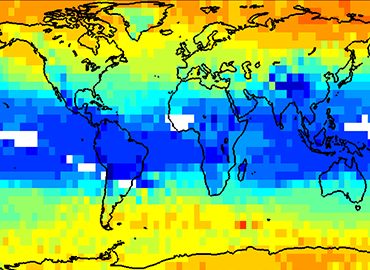 Liu's Atmospheric and Ecological Environments Group
Liu's Atmospheric and Ecological Environments Group
Primary Contact: Jane Liu
Host Campus: Department of Geography & Planning, St. George
Our research focuses on processes in our atmospheric and ecological environments and mechanisms modulating these processes. We develop and use advanced atmospheric and ecological models to mimic these processes and to diagnose their interactions. Using technology of remote sensing, geographic information system (GIS), and computer programming, we conduct integrated analysis of data from multiple sources from surface, balloons, aircrafts, and satellites. The ultimate goal of the research is to find scientific ways to solve environmental problems.
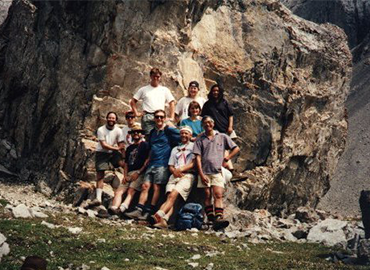 Desloges Geomorphology Research Group
Desloges Geomorphology Research Group
Primary Contact: Joe Desloges
Host Campus: Department of Geography & Planning and Department of Earth Sciences, St. George
Our group operates a wet lab, core preparation lab, grain material analysis lab, computer lab and a wide range of field equipment preparation spaces. There is a very wide range of shared analytical instrumentation in the Earth Sciences Centre.
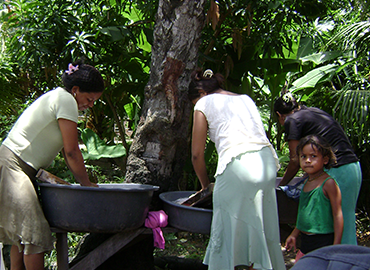 The Feminist Collective
The Feminist Collective
Primary Contact: Sharlene Mollett
Host Campus: Department of Geography & Planning, St. George, Department of Human Geography, UTSC, The Department of Global Development Studies, UTSC
The Feminist Collective is a writing and mentoring collective designed to bring into conversation a multi-scaled group of feminist thinkers, where undergraduate students, graduate students and faculty come together based on shared interests in intersectional feminism, anti-colonial, anti-sexist and anti-racist thought and practice. This year’s cohort consists of the following graduate students from the Department: Anahid Simitian, Andrew Thomas, Nokuzola Songo, Kaela Sanborn-Hum, Estefania Rueda-Torres along with six undergraduate fellows. The Collective will meet weekly and tri-mentor around a collective writing project, professional development activities and events. We welcome visits from faculty, staff, and advanced graduate students looking to share professional development tips, career trajectories, works-in-progress, and research presentations (etc.).
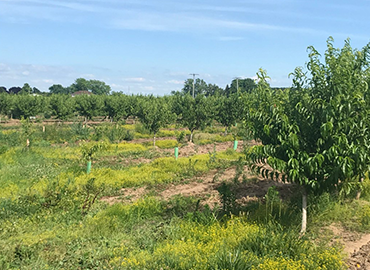 Food, Environment, and Activism Study Team (FEAST)
Food, Environment, and Activism Study Team (FEAST)
Primary Contact: Sarah Wakefield
Host Campus: Department of Geography & Planning, St. George
FEAST explores the various ways different communities organize around social justice issues, particularly – although not exclusively – in relation to food. We are especially interested in how equity-seeking groups (particularly communities of colour and Indigenous communities) in North America engage with social justice and /or food system issues, as well as how “mainstream” environmental and food activist groups reach out to (and /or work in solidarity with) equity-seeking communities.
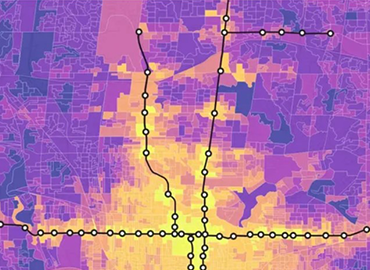 Mobilizing Justice
Mobilizing Justice
Primary Contact: Steven Farber
Host Campus: Department of Human Geography, UTSC
Mobilizing Justice is a Canadian Partnership conducting research to support equitable transportation planning processes and outcomes.
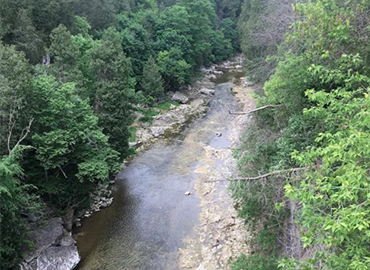 Political Economy of Environment and Political Ecology (PE2) Research Group
Political Economy of Environment and Political Ecology (PE2) Research Group
Primary Contact: Scott Prudham
Host Campus: Department of Geography & Planning and the School of the Environment, St. George
Our group is organized loosely around graduate students who are supervised by or work in some capacity with Professor Scott Prudham, and who share a common interest in a broad political economy approach to understanding environmental issues (i.e., environmental change, natural resource appropriation, environmental politics and social movements, environmental regulation, environmental injustice, etc.). Some in the group are also drawn to embracing the umbrella descriptor “political ecology” to describe the scope of our shared interests. We don’t care too much about being classified.
We are more or less a co-operative, non-hierarchical group set up to mentor one another and to share and advance our research programs, particularly through the production and dissemination of scholarly writing.
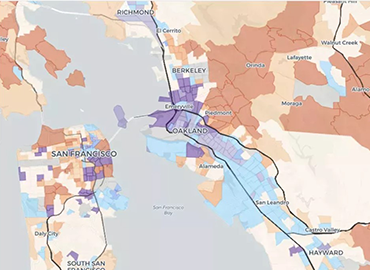 Urban Displacement Project
Urban Displacement Project
Primary Contact: Karen Chapple
The Urban Displacement Project (UDP) is a research and action initiative of the University of Toronto and the University of California Berkeley. UDP conducts community-centered, data-driven, applied research toward more equitable and inclusive futures for cities. Our research aims to understand and describe the nature of gentrification, displacement, and exclusion, and also to generate knowledge on how policy interventions and investment can support more equitable development.


